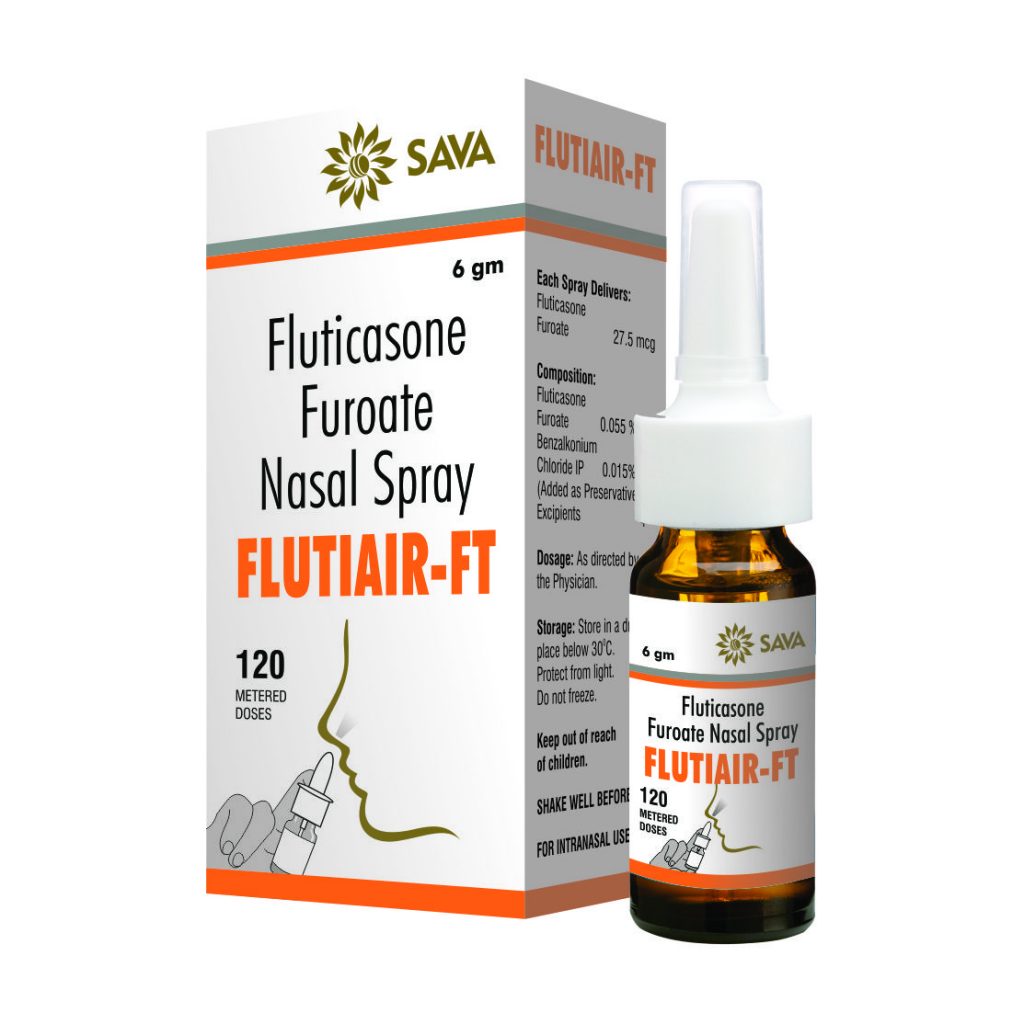FLUTICASONE NASAL SPRAY BP 0.05% W/V
ANTI -ALLERGIC
Categories Anti -Allergic, International, Nasal Spray
Brand: FLUTIAR NS 0.05%
Used for allergic rhinitis and nasal polyps.
Adult Dose :
- 2 sprays per nostril once daily or 1 spray twice daily
Pediatric Dose :
- 1 spray per nostril once daily (children ≥ 4 years)
A steroid anti-inflammatory drug that reduces inflammation in the nasal cavity. It is effective for allergic rhinitis and sinusitis symptoms, working by inhibiting inflammatory cells and substances, thus improving symptom control and airway function.
Hypersensitivity to fluticasone or other corticosteroids. Untreated fungal, bacterial, or viral infections.
May cause nasal dryness or irritation. Prolonged use may lead to adrenal suppression, glaucoma, or nasal septum perforation. Use with caution in immunosuppressed patients.
